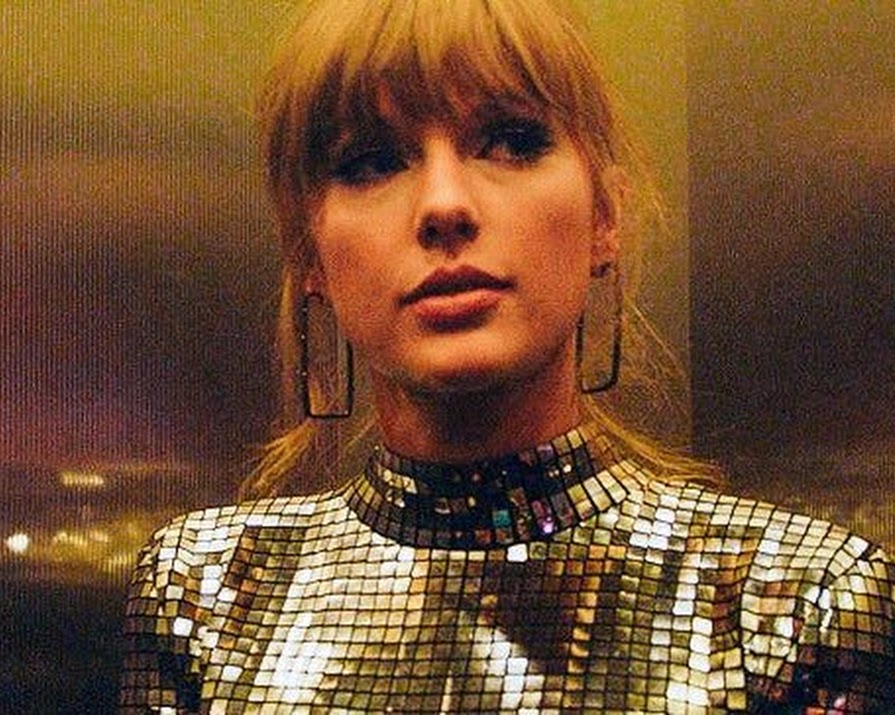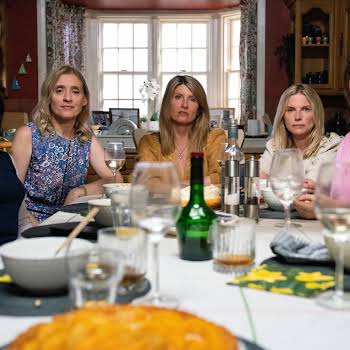
By Edaein OConnell
08th Apr 2021
08th Apr 2021
The documentary Miss Americana has shown a different side to Taylor Swift, writes Edaein O’ Connell
I was never able to say the words “I like Taylor Swift”.
It was something about her. I couldn’t put my finger on it. Some of her songs were catchy and at random intervals, I would find myself humming a tune of hers. While I could appreciate her immense talent as an artist, I could never warm to the person.
Looking back, this was ludicrous. The idea that we can form an entitled opinion about a person whom we have never met is notional. When it comes to the celebrities of today, there is a strange sense of ownership felt by those who are, in many ways, funding the limelight. If these stars go out of line or make us feel ill at ease, we slate them.
Taylor Swift did nothing to me. Being honest, I didn’t care that much at all. However, when her name was brought up, I had an opinion which never had a positive stance.
This changed when I watched the Netflix documentary Miss Americana.
The documentary debuted on the opening night of the 2020 Sundance Festival to critical acclaim. It follows Taylor over several years, documenting her unprecedented rise to the top of both the country and pop world. Through this time Taylor herself battled an eating disorder, fought and won a sexual assault trial, dealt with her mother’s cancer diagnosis, went public with her political views and became both the darling and the villain of the celebrity world.
A lot has happened in the life of Taylor who just turned 30 last December.
Validation addiction
Taylor validated herself on the applause of others. She wanted people to like her music and her. This aspect isn’t difficult to understand because the life and times of a musician are dependent on the opinions of the public. Your fans are your lifeline. From a young age, she understood she needed praise to propel her both personally and professionally.
Justifying your worth by the opinion of others is an addiction and addiction will make you do things you aren’t proud of. You will lie, cheat, re-invent and lesson your true self to get that high.
For Taylor, it seems her addiction to being what she thought everyone wanted her to be was her downfall. She was a good girl with country roots. Taylor talked but she never said enough that you could truly know her.
Yet she still wanted you to like her.
Kanye
In 2016, after Kim Kardashian leaked a video of a recorded phone conversation between Kanye West and Taylor, the hashtag #TaylorSwiftIsOverParty became the number one worldwide trend on Twitter. Following the publishing of the material, the abuse aimed at Taylor was truly unpleasant.
She disappeared for a year because she thought that’s what people wanted her to do.
Watching the documentary, it’s easy to forget that Taylor was only 19 years old when Kanye stormed the stage at the MTV VMAs in 2009. Taylor had won Music Video of the Year – her very first. Kanye stole something from her that day. He stole the light from a young girl who wanted to shine. One of the most heartbreaking moments of the documentary is when she says she thought those in the audience were booing at her.
This began a chain reaction in her life. She worked the hardest to be the best. She won the Grammys, the plaudits, the praise, the love but it was never enough. A fractured relationship with her body ensued.
It’s clear Taylor was a people-pleaser. One of the aspects which disappointed me in the documentary is that she didn’t address the Kanye fiasco, but reading between the lines will provide you with enough. Her silence and her misgivings were her protecting the image she worked hard to create.
Men
Taylor’s story is intrinsically linked with men. It’s the men she dated, it’s Kanye, it’s her father, her producers and the men who manage her. At one point, she fights with her father and male management team while she and her mother face them. For Taylor, it was the right time for her to voice her political beliefs following her sexual assault case, something which country singers don’t do. The men in the room wanted her to stay quiet and protect the universe she had created in 12 years. Taylor didn’t care anymore about the repercussions, she had faced worse and could deal with animosity.
Towards the end, she speaks about the gender disparity in her industry. If she were a man, she would not have to change herself. To recreate herself into something or someone who won’t make the world uncomfortable.
“I’m trying to be as educated as possible on how to respect people, on how to de-program the misogyny in my own brain. Toss it out, reject it, and resist it,” she says. “Like, there is no such thing as a slut. There is no such thing as a b—-. There is no such thing as someone who’s bossy, there’s just a boss.”
Adding: “We don’t want to be condemned for being multifaceted.”
And this is to be Taylor’s next chapter. The pages of the book where she no longer feeds solely off the applause and approval of others. Self-awareness is her new weapon, it seems. She says she will ride the wave she finds herself on, knowing she will never be as successful or as famous as she is now.
Though the documentary may be criticised for being a clever marketing tool, it is fascinating viewing. Sometimes we ignore the fact celebrities are beings with brains and feelings. Because they lay behind a lens we feel obliged to criticise and condemn.
Taylor shot to fame and knew only that she had to work to please. Please the men, the media, the fans but not herself. She’s a lot like the rest of us making mistakes and paying for them. Trying to be accepted in a world that sometimes won’t let you be yourself. Fighting the patriarchy and trying to survive an industry that will cut you just as much as it will celebrate you.
If it was made with the purpose for good PR, then it worked because now I can say it.
I like Taylor Swift.
Read more: The Bafta-winning ‘For Sama’ is our must-see documentary for awards season
Read more: 10 of the best health and wellness podcasts to listen to right now
Read more: 7 Netflix picks we can’t wait for in February





















